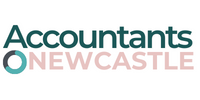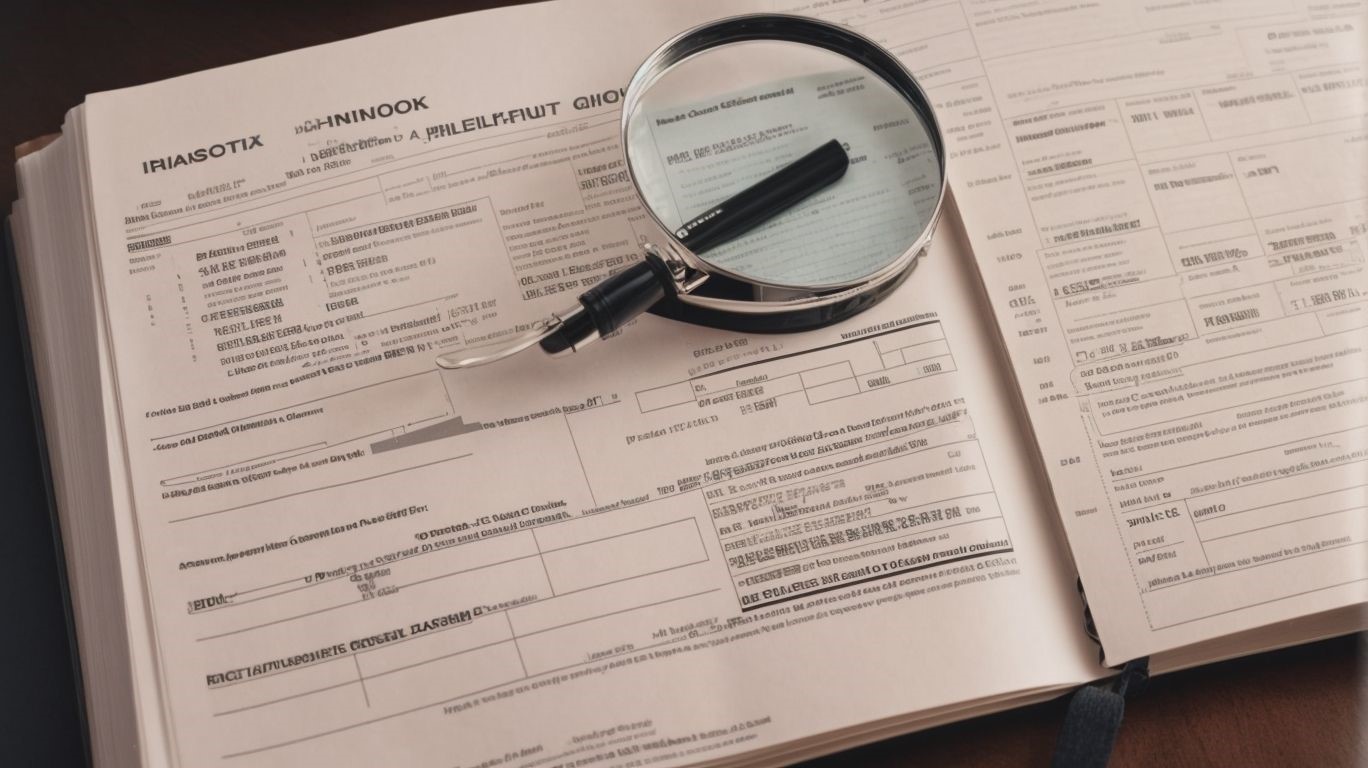Are you feeling overwhelmed by the prospect of filing your self-assessment tax return? Don’t worry; we’ve got you covered. This guide will walk you through everything you need about self-assessment tax returns. This includes who needs to file, what information is required, and the deadlines you must know. We’ll also cover what happens if you miss the deadline, how to file your return, and the benefits of filing. Plus, we’ll address some frequently asked questions to help you confidently navigate the process. So, let’s get started!
What Are Self-Assessment Tax Returns?
Self-Assessment Tax Returns in the United Kingdom are a vital part of the tax system, allowing individuals to report their income and expenses to HM Revenue & Customs for accurate taxation.
Tax Returns are crucial in ensuring taxpayers accurately report their income, gains, and reliefs. This allows for fair taxation and the deduction of applicable expenses.
The UK tax system promotes transparency and accountability by requiring individuals to assess and report their financial information.
Who Needs to File a Self-Assessment Tax Return?
Individuals who are self-employed professionals, entrepreneurs, or have income sources outside of traditional employment may need to file Self-Assessment Tax Returns as per the requirements of the UK tax system.
Individuals required to file Self-Assessment Tax Returns must report their income, expenses, and profits from self-employment. This includes any additional sources of income, such as property rentals, savings, or investments. It is crucial to adhere to the deadlines set by HM Revenue & Customs (HMRC) to avoid penalties or fines. Additionally, those eligible for Self-Assessment Tax Returns are responsible for calculating and paying their tax liabilities, including contributions to National Insurance if applicable.
What Information Is Required for a Self-Assessment Tax Return?
Personal Information
The personal information required for a Self-Assessment Tax Return includes details such as the Unique Taxpayer Reference (UTR) and National Insurance contributions, which are essential for accurate identification and categorisation within the tax system.
UTR plays a crucial role as a unique identifier for every taxpayer in the UK, ensuring that their tax affairs are managed correctly.
National Insurance contributions are key for determining entitlement to state benefits and pension payments. Accurate UTR and National Insurance details ensure that income, expenses, and taxes are correctly attributed to the individual, allowing for accurate categorisation and calculation within the UK tax system.
Income Information
Income information for a Self-Assessment Tax Return encompasses earnings from employment, freelance work, investments, and other sources, which are critical in determining tax liabilities within the UK tax system.
Employment earnings cover wages, salaries, bonuses, and benefits from all employment, including those from overseas, if applicable. Income from self-employment, such as consulting or freelance work, falls under the purview of the Self-Assessment Tax Return.
Moreover, investment income like dividends from shares, interest from savings, rental income, and gains from selling assets should be meticulously reported. Additional sources like pensions, social security benefits, and other miscellaneous earnings must also be diligently documented for accurate tax assessments.
Deductions and Expenses
Deductions and expenses play a crucial role in a Self-Assessment Tax Return, allowing individuals to offset eligible costs against their income, thus influencing the final tax obligations per the UK tax system guidelines.
When individuals meticulously track their deductible expenses, they can significantly reduce their taxable income. This involves various categories, such as business expenses, charitable contributions, and mortgage interest.
By accurately accounting for these expenses, taxpayers can lower their tax liabilities and maximise refunds. Understanding the intricacies of allowable deductions enables individuals to make informed financial decisions and optimise their tax strategies.
Capital Gains
Capital gains, stemming from the sale of assets or investments are a pivotal component of a Self-Assessment Tax Return, carrying implications for taxable income and obligations within the UK tax system.
When an individual sells an asset or investment for a profit, the difference between the sale price and the original purchase price is considered a capital gain. These gains are reported on the Self-Assessment Tax Return, contributing to the overall taxable income.
The taxable amount is determined after factoring in any allowable deductions or exemptions. It is important to accurately calculate and report capital gains to ensure compliance with HM Revenue & Customs (HMRC) regulations. Failure to do so could result in penalties or fines.
Understanding how capital gains are taxed can help individuals make informed decisions regarding managing their assets and investments.
Other Income Sources
Along with conventional income sources, reporting other income streams, such as pensions, annuities, and benefits, is essential for a comprehensive Self-Assessment Tax Return, aligning with the requirements of the UK tax system.
These diverse income sources play a crucial role in an individual’s financial landscape, reflecting the changing nature of work and retirement.
Pensions, including state, workplace, and personal pensions, form a significant component of many people’s income. Annuities, especially those purchased with retirement funds, contribute to financial stability. Benefits, such as Jobseeker’s Allowance and Incapacity Benefit, also impact an individual’s financial status.
Recognising and accurately reporting these income sources in the tax return ensures compliance with UK tax regulations and promotes transparency in personal financial affairs.
When are the deadlines for submitting a self-assessment tax return?
Understanding the deadlines for filing a Self-Assessment Tax Return is crucial, with distinct timelines for paper and online submissions aligning with the HM Revenue & Customs guidelines and the UK tax system requirements. Complying with these deadlines ensures that taxpayers avoid late filing penalties and interest charges.
Paper Filing Deadline
The paper filing deadline for a Self-Assessment Tax Return typically falls in October, marking an essential milestone for individuals opting for traditional submission methods in adherence to the prescribed deadlines.
Individuals filing their tax returns using traditional paper methods must ensure their documents are submitted on time to avoid late penalties. This deadline is integral to the overall Self-Assessment Tax Return filing process, ensuring that the government receives accurate financial information.
Timely filing also allows individuals to avoid the stress and potential complications of missing the deadline and the subsequent need for negotiations and justifications with tax authorities. Therefore, staying informed about this essential milestone is crucial for taxpayers utilising conventional submission methods.
Online Filing Deadline
The online filing deadline for a Self-Assessment Tax Return usually extends till January, reflecting the digital era’s transition and aligning with the UK tax system’s HM Revenue & Customs’ Making Tax Digital initiative.
By extending the deadline to January, individuals and businesses have more time to gather their financial records, calculate their tax liability, and submit their returns accurately.
The alignment with HM Revenue & Customs’ Making Tax Digital initiative emphasises the push towards digital tax submissions, streamlining the process and increasing efficiency. This initiative supports the government’s efforts to modernise the tax system, providing taxpayers with a more convenient and secure method of filing their tax returns.
With the transition to digital submissions, taxpayers can benefit from easier record-keeping, reduced errors, and improved compliance with tax regulations.
What occurs if the deadline is missed?
Late filing penalties and interest on outstanding payments can significantly increase the financial burden for individuals. In addition, it can have legal consequences and negatively impact tax compliance records, affecting future financial transactions and credibility. Therefore, adhering to the filing deadline is crucial to avoid these unfavourable repercussions within the UK tax system.
Late Filing Penalties
Late filing penalties for a Self-Assessment Tax Return can lead to financial consequences, reflecting the strict adherence to deadlines and regulatory compliance within the UK tax system.
The penalties for missing the deadline for submitting your Self-Assessment Tax Return should not be underestimated. For instance, if the return is up to 3 months late, you could face an initial penalty of £100.
Further penalties will be imposed if the delay continues, potentially rising to £1,600 or more. The UK tax system places a significant emphasis on timely compliance, and such penalties are intended to encourage individuals to file their returns within the prescribed deadlines.
Interest on Late Payments
Accrued interest on overdue payments resulting from a missed Self-Assessment Tax Return deadline highlights the financial impact and additional obligations within the UK tax system, reflecting the importance of timely compliance.
The UK tax system requires individuals and businesses to lodge their tax returns by the specified deadline. Failing to meet this deadline can lead to significant consequences, including interest accrual on any outstanding payments. This interest can quickly build up, adding to the taxpayer’s financial burden. Late payments and non-compliance can result in penalties HM Revenue and Customs impose, further worsening the financial implications.
Timely compliance with tax obligations is essential to avoid these financial pressures and uphold a good standing with the tax authorities.
How do you submit a self-assessment tax return?
Online Filing
Online filing of a Self-Assessment Tax Return offers convenience and efficiency, complementing the HM Revenue & Customs’ digital initiatives and the transformative objectives of the UK tax system.
Filing a Self-Assessment Tax Return online involves a user-friendly interface that guides individuals through the necessary steps, eliminating the need for paper forms and manual submissions.
This method streamlines the entire process by providing digital access to tax returns. It aligns with HM Revenue & Customs’ efforts to modernise and improve taxpayer experiences. Online filing reduces the risk of errors and ensures quicker processing, contributing to a more efficient tax system overall.
Paper Filing
Traditional paper filing of a Self-Assessment Tax Return provides individuals with a tangible submission option, preserving adherence to conventional methods whilst accommodating the transition to digital tax submissions within the UK tax system.
Opting for paper filing allows individuals to physically handle their tax return documents and directly navigate the intricacies of the submission process. This method aligns with the familiarity of traditional practices, catering to those more comfortable with tangible paperwork.
Despite the ongoing shift towards digital tax submissions, paper filing remains viable, offering a sense of security and control over the submission. It also visually represents the tax return, allowing individuals to comprehend the details more tangibly.
What are the advantages of submitting a self-assessment tax return?
Claiming Tax Refunds
Filing a Self-Assessment Tax Return presents the opportunity to claim tax refunds for eligible overpayments, reflecting the financial benefits and regulatory compliance within the UK tax system.
This process allows individuals to review and declare their income, capital gains, and other financial details from the previous tax year, thereby ensuring accurate taxation.
By claiming tax refunds through this method, taxpayers can optimise their financial resources, potentially receiving significant reimbursements which can contribute to personal savings, investments, or expenditures.
Engaging in Self-Assessment ensures adherence to HM Revenue and Customs regulations, promoting transparency and accountability in tax matters.
Avoiding Penalties and Interest
By timely submission of a Self-Assessment Tax Return, individuals can avoid penalties and the accrual of interest on outstanding payments, safeguarding their financial standing and demonstrating compliance with the UK tax system.
Adhering to submission deadlines is crucial to avoid financial repercussions. Failure to submit tax returns on time can result in penalty charges, adding unnecessary financial strain. Additionally, interest on outstanding payments can increase the tax liability. Fulfilling tax obligations within the specified timeframe demonstrates responsible financial behaviour and a commitment to meeting tax responsibilities in the UK.
Accurate Record-Keeping
Maintaining accurate financial records through filing a Self-Assessment Tax Return is crucial for regulatory compliance and establishing a robust financial framework within the UK tax system.
By diligently documenting income, expenses, and other financial transactions, individuals can ensure they meet their tax obligations and avoid potential penalties or audits.
This process contributes to regulatory compliance and provides a comprehensive overview of one’s financial standing, enabling knowledge-based decision-making and efficient financial management.
FAQs about Self-Assessment Tax Returns
Can I file a self-assessment tax return if my income falls below a specific threshold?
Individuals with income below a specific threshold may question their eligibility to file a self-assessment tax return, seeking clarity on the requirements and implications within the UK tax system.
In the United Kingdom, self-employed individuals with substantial untaxed income or income from savings, investments, or property must file a self-assessment tax return.
Even if your income falls below the tax-free personal allowance, submitting a tax return can still be advantageous. Doing so enables you to claim certain tax reliefs, which can result in a refund if you’ve paid too much or reduced the tax you owe. It also ensures that your income is correctly recorded with HM Revenue and Customs, which can benefit future financial planning and transactions.
I would like professional help in preparing and submitting my self-assessment tax return.
Seeking professional assistance for preparing and filing a self-assessment tax return is a common consideration, with individuals evaluating the benefits and guidance available within the framework of the UK tax system.
When choosing whether to enlist the services of a tax professional, individuals should weigh the advantages of expert knowledge and support in navigating the complexities of tax laws and regulations.
A skilled tax advisor can offer insights into potential deductions, exemptions, and credits that could minimise tax liabilities. They can provide valuable guidance on record-keeping and compliance requirements, ensuring that the tax return is accurately prepared and in adherence to the HM Revenue & Customs guidelines.





